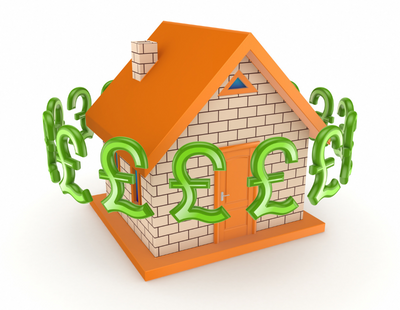It puts the average UK asking price at £373,493, down £1,617 since last month but up 0.4% annually.
The index shows agents have seen a 3% annual rise in new sellers coming to market, while the level of sales agreed has increased by 15%.
However, demand has dipped and was down 2% among first-time buyers, according to Rightmove.
The portal’s director of property science Tim Bannister suggested that expectations of an interest rate cut in the coming months and political certainty from Labour’s election win could boost the property market, especially if mortgage pricing drops.
He said: "A base rate cut is expected to lead to lower mortgage rates, which could be the gamechanger for some would-be home-movers who are being held back by significantly higher monthly mortgage costs.
“The average five-year fixed rate is still nearly twice as high as it was before the first of 14 consecutive Bank of England rate increases in 2021, with rates staying elevated for much longer than many thought that they would.
“A first base rate cut for over four years, together with the new political certainty, could set the scene for a positive Autumn market, with improved affordability and a more confident outlook in the second half of the year."
Average asking prices for newly listed homes dropped by the most at the top of the market, with a 1.3% monthly decline and 1% annual rise to £681,096.
Typical first-time buyer asking prices rose 0.1% on the month and by 1.1% annually to £227,924, while the average second-stepper asking fell 0.1% between June and July and rose by 0.8% since last year to £343,617.
Regionally, average asking prices dropped by the most in the South East of England on a monthly basis, down 2% and fell by 1% annually in the South West.
Sellers in the North of England appear to be the most optimistic though, with average asking prices up by 3.5% annually in the North West of England and by 4.6% in the North East.
Bannister added: “Three major uncertainties hanging over the property market at the start of the year were when the first interest rate cut would be, and the timing and the result of the General Election.
“We’ve now got the political certainty of a new government with a large majority, which we expect will help home-mover confidence. It’s very early days, but the new chancellor’s immediate announcements on housebuilding targets and planning reform are positive signs that the government is keen to get going with its manifesto pledges.”
Commenting on the index, Nathan Emerson, chief executive of Propertymark, said: “Any slight dip in house prices is likely to only be a temporary phase following a period of uncertainty triggered by the recent general election.
“Once we start to hear more news from the new UK government about how they intend to build 1.5m new homes before the end of this parliament, alongside their other priorities for housing, this should give consumers the certainty they need to determine if they will relocate or not.
“Should inflation also continue to drop, the Bank of England may feel confident to start cutting interest rates to provide the housing market with a much-deserved summertime boost.”














.png)


.png)




Join the conversation
Be the first to comment (please use the comment box below)
Please login to comment